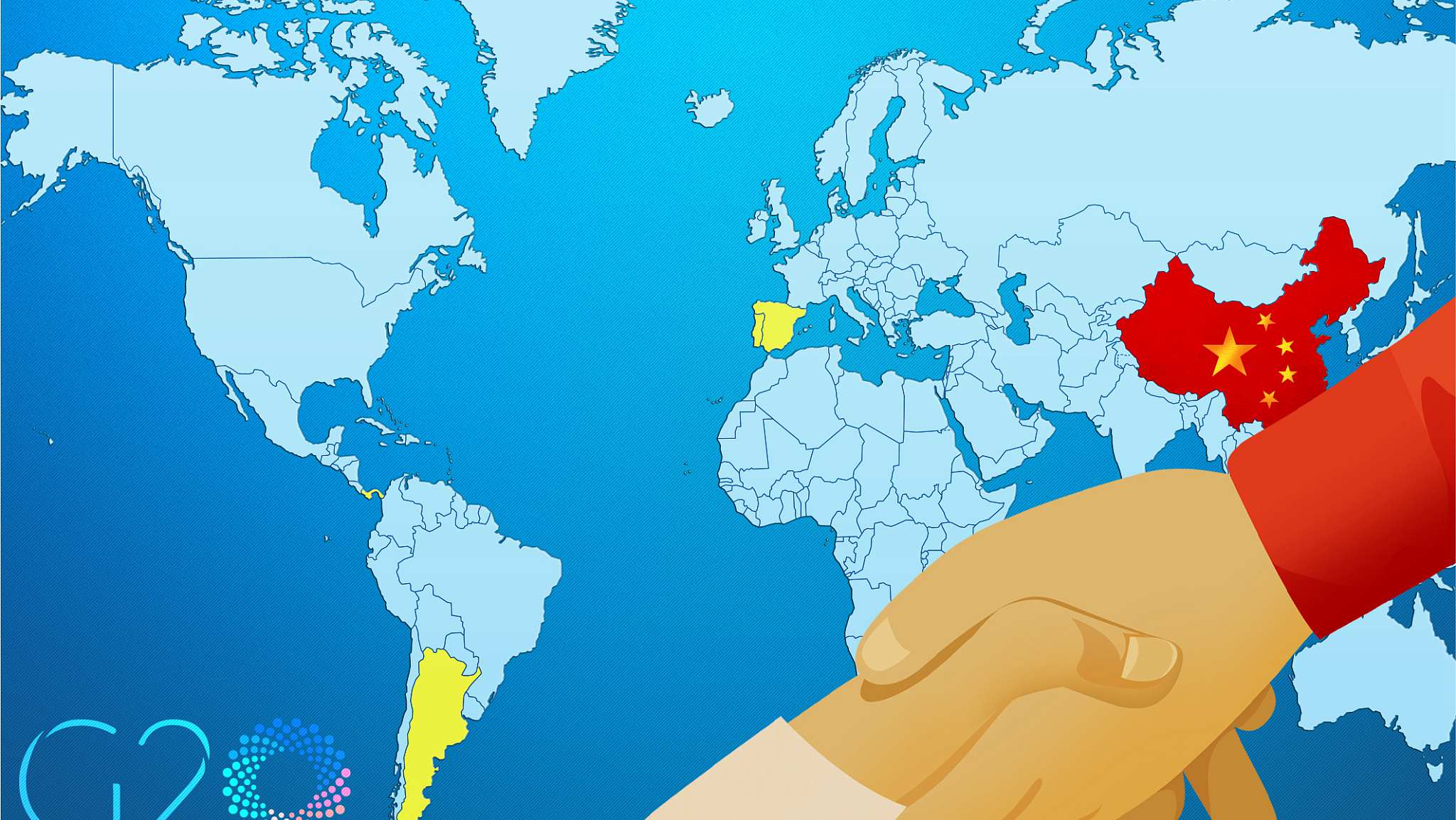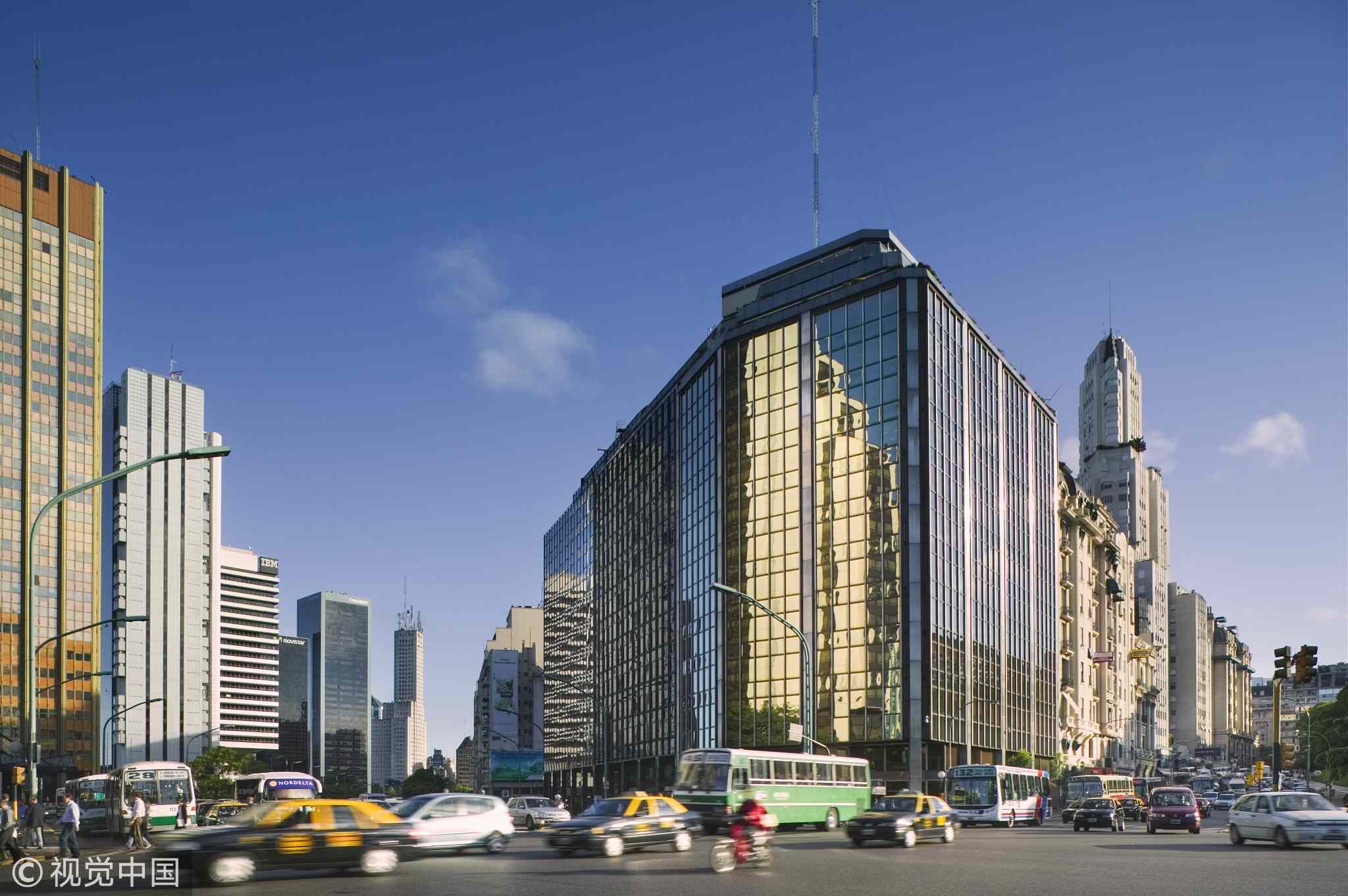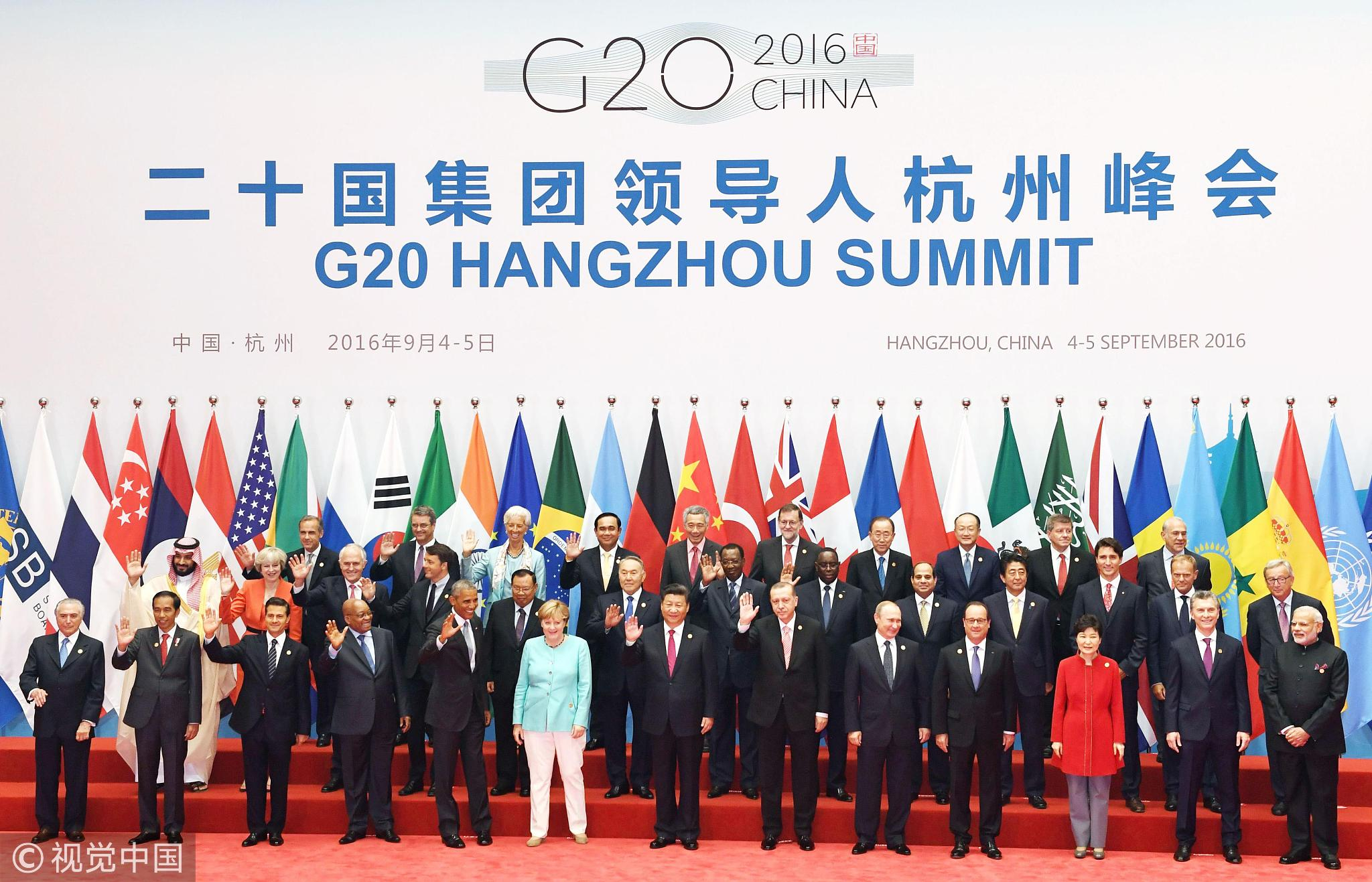
Opinions
19:57, 27-Nov-2018
Opinion: China acting as a responsible power to uphold the G20 spirit
Updated
19:15, 30-Nov-2018
Wang Li

Editor's note: Wang Li is a professor at Jilin University. The article reflects the author's opinion, and not necessarily the view of CGTN.
The G20 has become a vital forum for the world major economies with huge clout and significant global roles since it was founded in 1999.
In light of this, the world community has high expectation of the G20 and particularly places great hopes on the upcoming summit which is scheduled from November 30 to December 1.
Chinese President Xi Jinping will conduct state visits to Spain, Argentina, Panama and Portugal from November 27 to December 5. He will attend the G20 summit in Buenos Aires during the trip.
It indicates that China looks to the G20 summit with a view “to bring together systemically important industrialized and developing economies to discuss key issues in the global economy” which is defined as the mission of the gathering.

City Street, Buenos Aires, Argentina. /VCG Photo
City Street, Buenos Aires, Argentina. /VCG Photo
In a rapidly globalizing world, the G7 and the Bretton Woods system have been obviously unable to provide financial stability. They conceived a new broader permanent group of major world economies, like the G20, to provide new solutions and responsibilities in sustaining it.
The upcoming G20 has assumed this particular meaning since the United States and China, two largest global economies, have been involved into a trade friction. Moreover, the senior leaders of the Trump administration have held old practices like protectionism and unilateralism, including Pence's groundless attacks on China during the latest APEC meeting in Moresby, Papua New Guinea.
In this sense, it is understandable that people are concerned about the uncertainties of the upcoming G20 summit.
Yet, there are plenty of reasons why it could result in a successful summit.
First, internationally the G20's primary focus has been the governance of global economy. China is the second largest economy and the largest developing country. It has dedicated itself to building up an open global economy.
In addition, as Gideon Rachman wrote in Financial Times that not only the other four members of the BRICS – Brazil, Russia, India, and South Africa but also Turkey, Argentina, Iran and some others “are more likely to side with China on the big international issues”.

City Street, Buenos Aires, Argentina. /VCG Photo
City Street, Buenos Aires, Argentina. /VCG Photo
China has been steadfast supportive of the G20 as a platform benefiting all involved. China has respected the developed countries' interests including the United States, but all this must be based on the spirit of partnership instead of any sort of unilateralism.
What China argues is that WTO's core principles and values should be free, open and nondiscriminatory to developing countries. China is ready to conduct any sincere meeting with the United States.
Second, China is still a developing country. It has maintained close contact and coordination with all other G20 members since the summit in 2016. And now it is ready to contribute to the upcoming summit and participate in a constructive and positive way.

Leaders of the Group of 20 major economies pose for a group photo at the G-20 summit in the eastern Chinese city of Hangzhou on September. 4, 2016. /VCG Photo
Leaders of the Group of 20 major economies pose for a group photo at the G-20 summit in the eastern Chinese city of Hangzhou on September. 4, 2016. /VCG Photo
For example, China has suggested a feasible consensus among all involved to endorse the 2030 sustainable development goals (SDGs). Thus China is sure to work closely with other members, the United States in particular, to take the world economy on a strong sustainable balanced and inclusive path.
Obviously, alongside the significance of the G20, the world will also focus on the meeting between President Xi and his U.S. counterpart Donald Trump, the first after the trade frictions since March. China has always been open to solve trade tensions through constructive dialogues. Yet, the core stance is that the two sides could respect each other on the basis of respective concerns to keep own promise and find solutions.
Today's world needs multilateralism and a strong UN more than ever before. China is willing to work with all sides involved to firmly uphold the principle of partnership and mutual trust. As the two largest economies of the world, it is wise for the United States to recognize the role of China as a status quo stabilizer rather than a challenge to the world order.
Equally, as the largest developing country, China would be able to play the irreplaceable role between the developed countries and the vast majority of the developing countries.
(If you want to contribute and have specific expertise, contact us opinions@cgtn.com)

SITEMAP
Copyright © 2018 CGTN. Beijing ICP prepared NO.16065310-3
Copyright © 2018 CGTN. Beijing ICP prepared NO.16065310-3